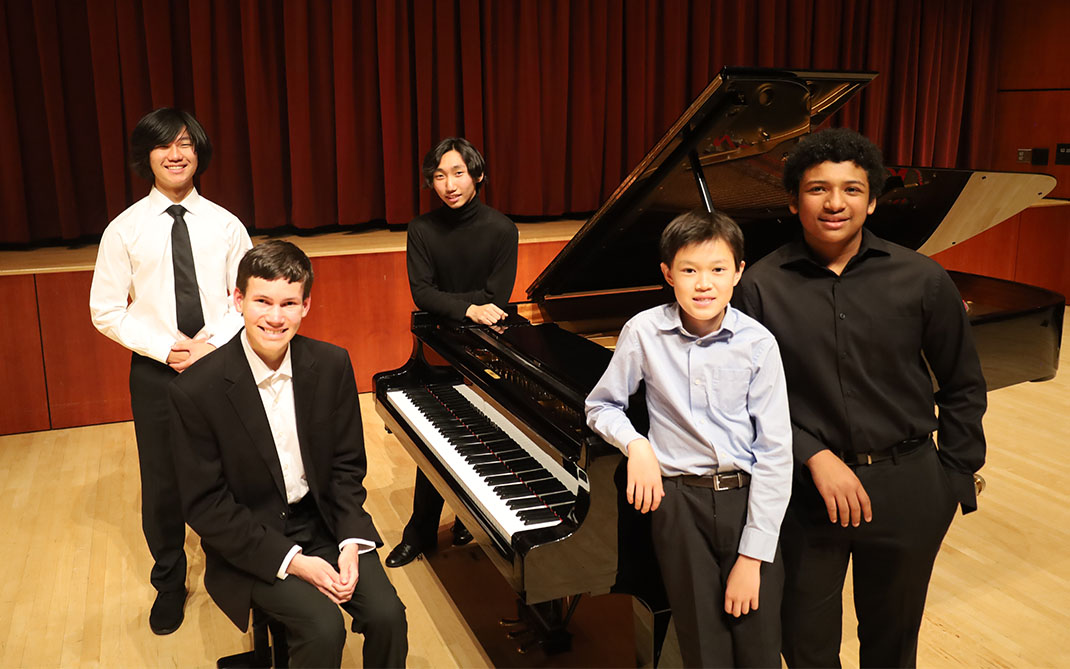Community Health Standards
Community Health Standards
Everyone at UNCSA must commit to doing their part to protect our campus community by following our Community Health Standards to limit the spread of viruses such as Influenza and COVID-19.
Get vaccinated and boosted
Immunizations are a core prevention strategy to lower risk from respiratory viruses. We strongly encourage our campus community to get vaccinated to protect against common viruses that could jeaorpardize the health of our campus.
COVID-19 vaccines
The CDC reports that COVID-19 vaccines cut the risk of severe disease in half. Over 95% of hospitalized adults were not up-to-date with their COVID-vaccine in fall 2023.
Influenza vaccines
Influenza (flu) vaccines (often called “flu shots”) are vaccines that protect against the four influenza viruses that research indicates will be most common during the upcoming season. Refer to the CDC guidance for the most up-to-date information on flu vaccines. Keep an eye out for announcements from UNCSA Health Services announcing regular flu vaccine events.
RSV vaccine
Adults ages 60 years and older should talk to their healthcare provider about whether an RSV vaccine is right for them. To prevent severe RSV disease in infants, CDC recommends either the pregnant mother gets an RSV vaccine, or the infant gets an immunization with an RSV monoclonal antibody. Most infants will not need both.
Take preventative measures
Hygiene
Practice good hygiene by covering your coughs and sneezes, washing and santizing your hands often, and cleaning frequently touched surfaces.
Masking
At UNCSA, wearing masks is optional for all faculty, staff, students and patrons. Any individual who wishes to continue to wear a face covering is encouraged to do so, especially those who are unvaccinated or at higher risk of serious illness from viruses such as COVID-19.
Wearing a mask can help lower the risk of respiratory virus transmission. When worn by a person with an infection, masks reduce the spread of the virus to others. Masks can also protect wearers from breathing in infectious particles from people around them. Different masks offer different levels of protection.
Physical distancing
Putting physical distance between yourself and others can help lower the risk of spreading a respiratory virus. There is no single number that defines a “safe” distance, since spread of viruses can depend on many factors. In general, the closer you are to someone who has a respiratory virus, the more likely you are to catch it.
Stay home when you are sick
Students, faculty and staff should not come to campus if they are sick with any illness. Taking steps to prevent the spread of respiratory viruses when you are sick is a core prevention strategy to lower risk from respiratory viruses.
UNCSA follows CDC guidance for what to do when you may have a respiratory virus. The CDC recommends staying home and away from others (including people you live with who are not sick) if you have symptoms that aren't better explained by another cause. These symptoms can include fever, chills, fatigue, cough, runny nose, and headache, among others.
You can return to your normal activities when, for at least 24 hours, both are true:
- Your symptoms are getting better overall, and
- You have not had a fever (and are not using fever-reducing medication).
When you go back to your normal activities, take added precaution over the next five days, such as taking additional steps for cleaner air, hygiene, masks, physical distancing, and/or testing when you will be around other people indoors.
Keep in mind that you may still be able to spread the virus that made you sick, even if you are feeling better. You are likely to be less contagious at this time, depending on factors like how long you were sick or how sick you were.
Test for COVID-19
Testing is an additional prevention strategy that you can choose to assist in making decisions to further protect yourself and others.
Students and employees can purchase COVID-19 tests at their local pharmacy or test at their doctor’s office.
Testing positive for COVID-19
UNCSA follows CDC guidance for what to do when you have a respiratory virus. The CDC recommends staying home and away from others. You can return to your normal activities when, for at least 24 hours, both are true:
- Your symptoms are getting better overall, and
- You have not had a fever (and are not using fever-reducing medication).
When you go back to your normal activities, take added precaution over the next five days.



